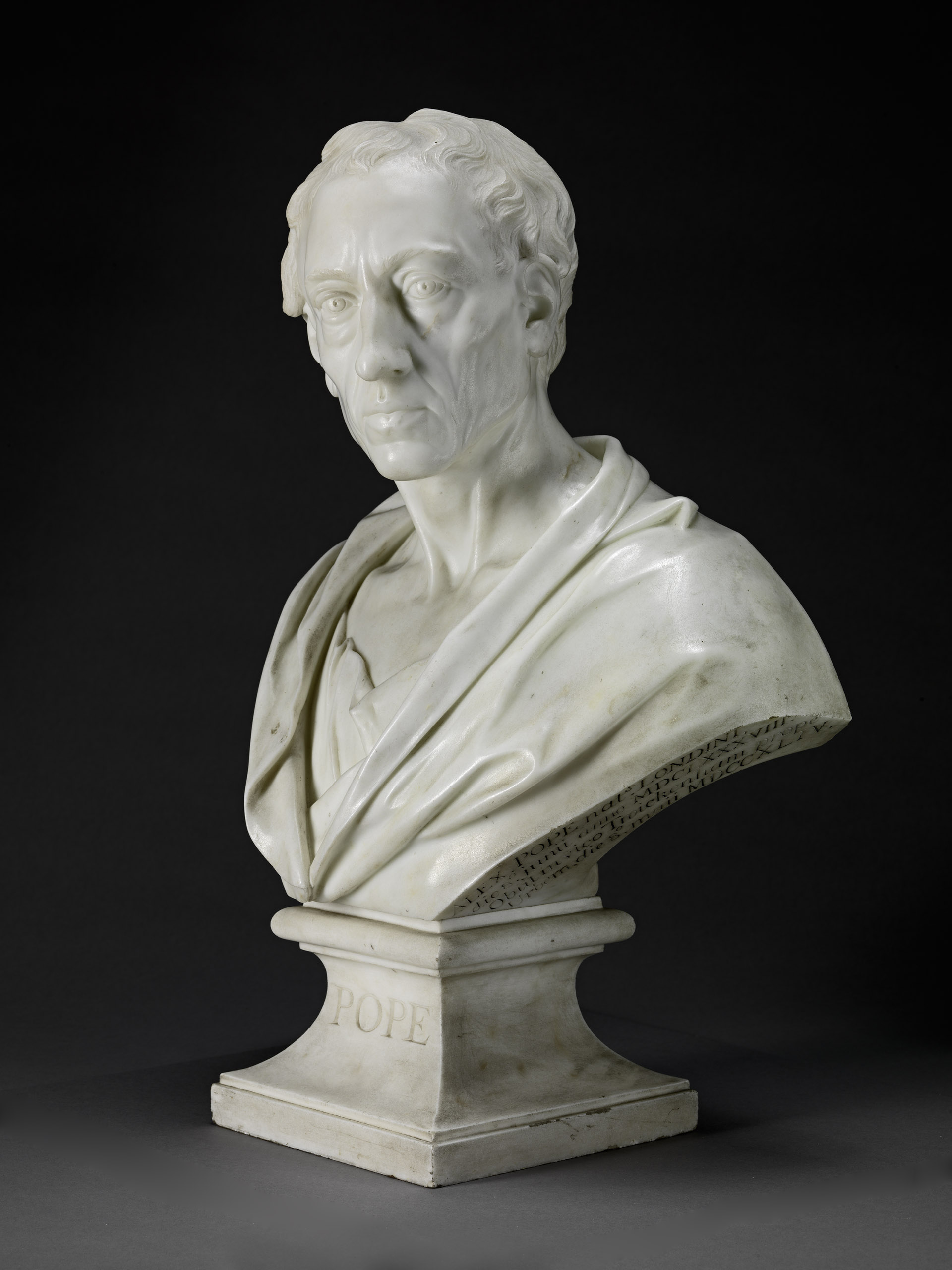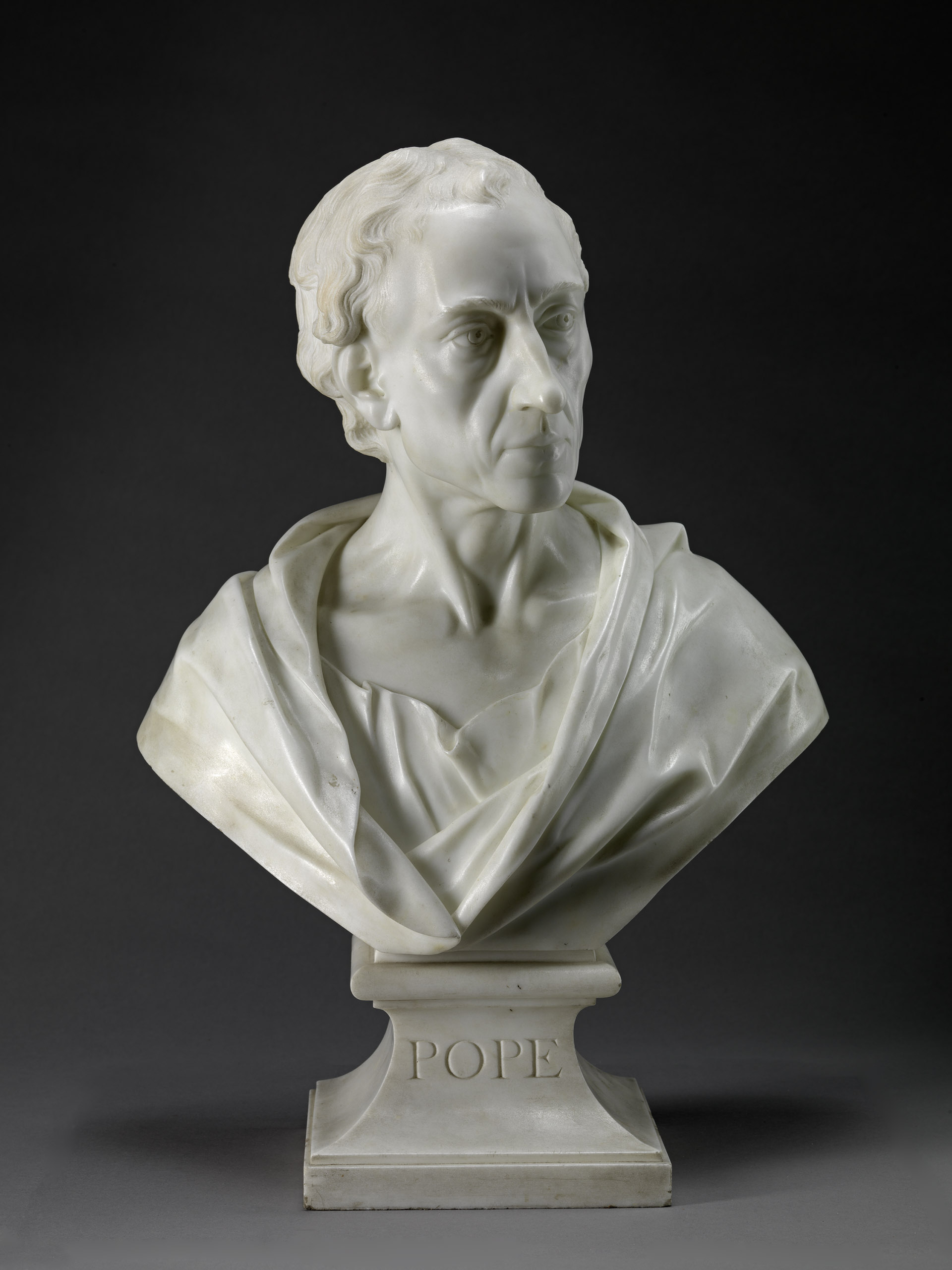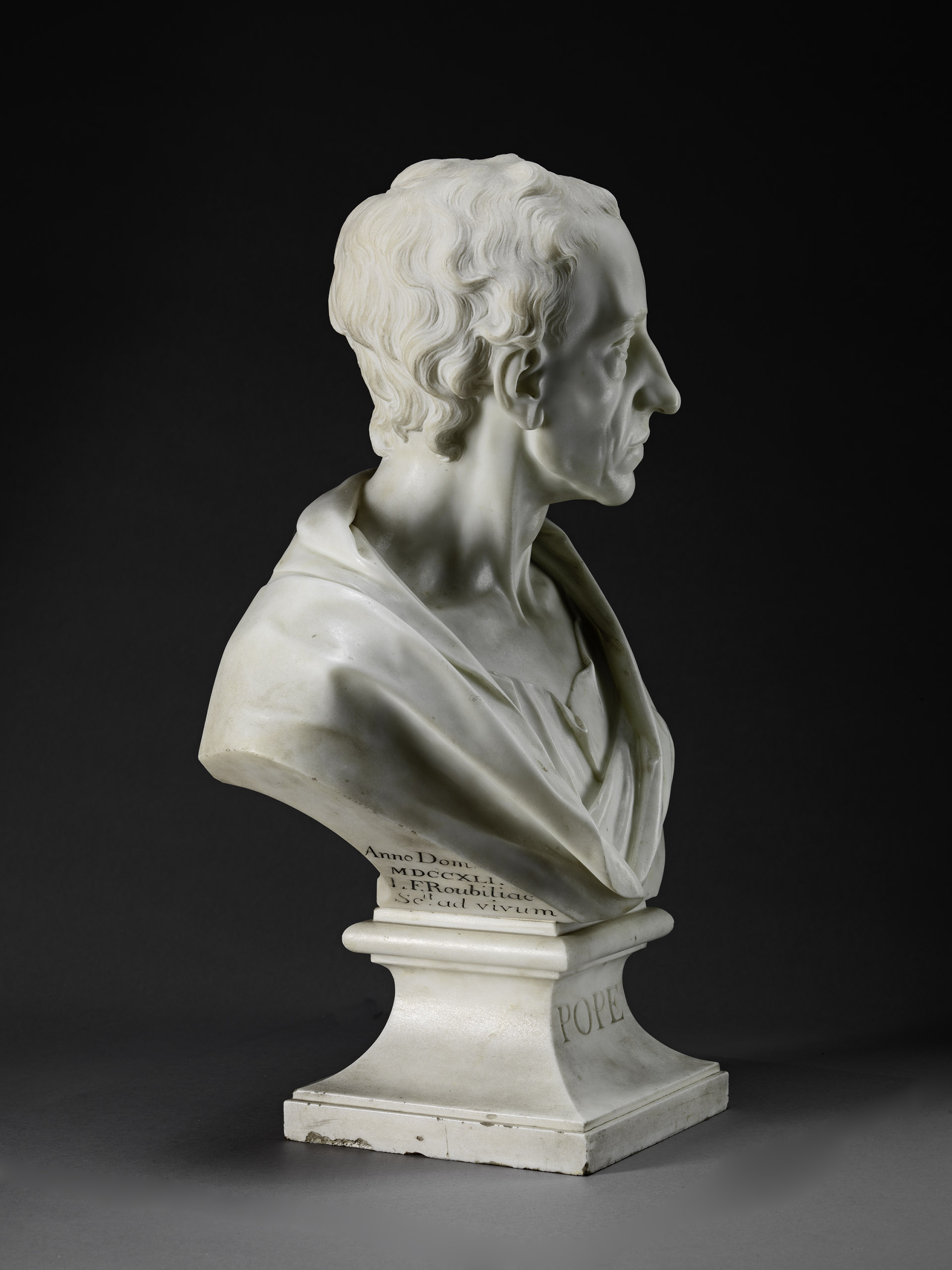Object of the Week
March 27, 2020
Struggling to adapt to homeschooling during these difficult times? Take inspiration from Alexander Pope. Barred by law from attending school or university because he was Catholic, and because a spinal infection left him wracked by constant pain and migraines, Pope was almost entirely educated at home. He triumphed over these conditions to become England’s finest poet of the eighteenth century.
In 1720, Pope completed his six-volume translation of Homer’s Iliad. Pope turned Homer’s austere Greek hexameter into elegant English couplets of iambic pentameter, producing what Samuel Johnson called “the greatest version of poetry which the world has ever seen.” Pope made a fortune from selling subscriptions to his Iliad, and his fame spread throughout the world.
This outstanding bust, by the French émigré sculptor Louis-François Roubiliac, was made in 1741 after Pope had sat for his portrait in 1738. The poet was notorious for his scathing tongue and pen, but Roubiliac gave him a quiet dignity and emphasized the power and intensity of his mind. (This was also the subject of Pope, Roubiliac, and the Portrait Bust in Eighteenth-Century Britain, an exhibition at the Center in 2014).
When the Irish politician John Wilson Croker heard that Sir Robert Peel, future prime minster of the United Kingdom and avid collector, had bought this bust for a bargain price in 1832, he wrote to congratulate him: “It is, to my taste, the finest bit of marble which I ever saw.”
Written by Matthew Hargraves, Chief Curator of Art Collections, Yale Center for British Art





